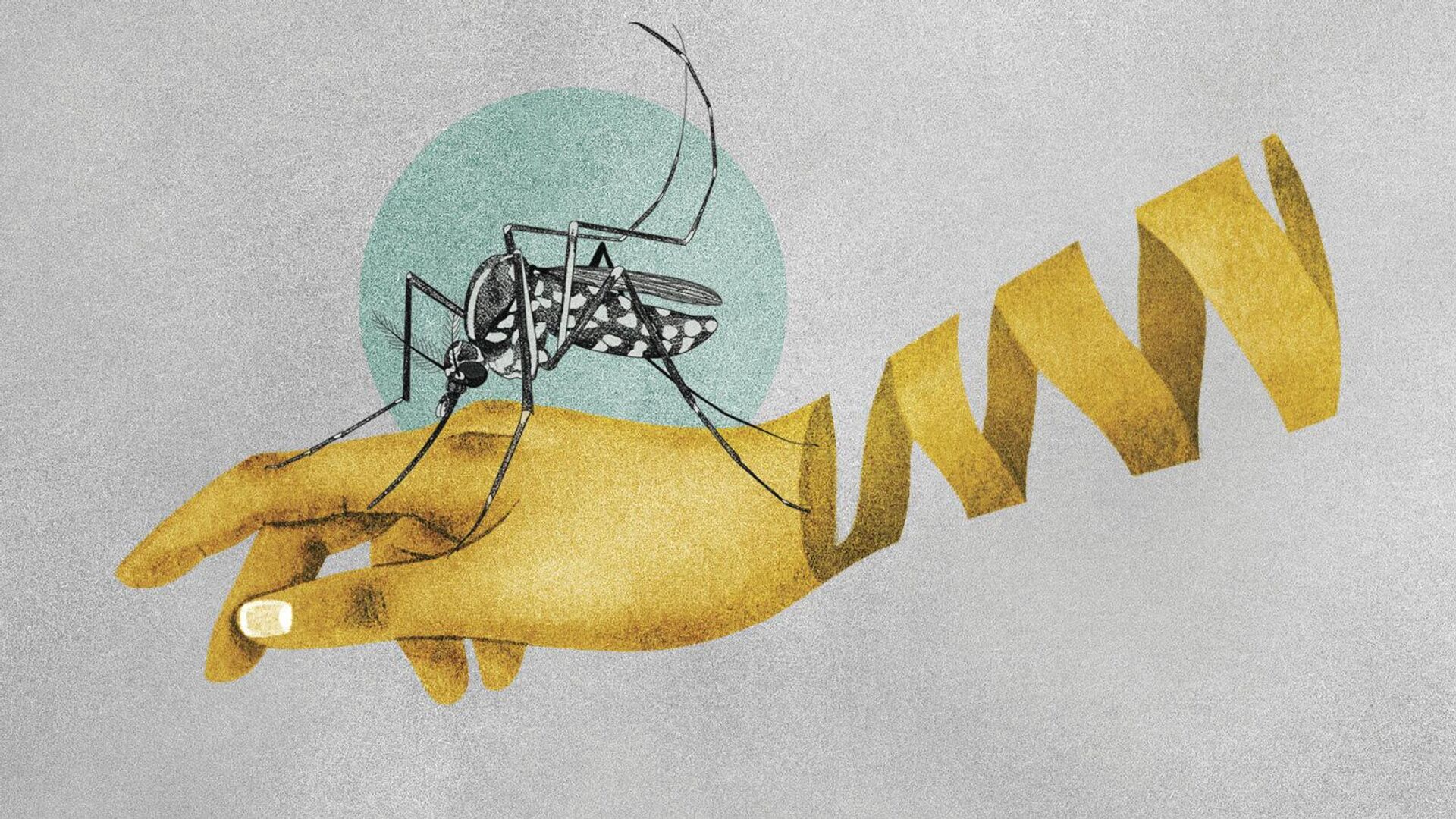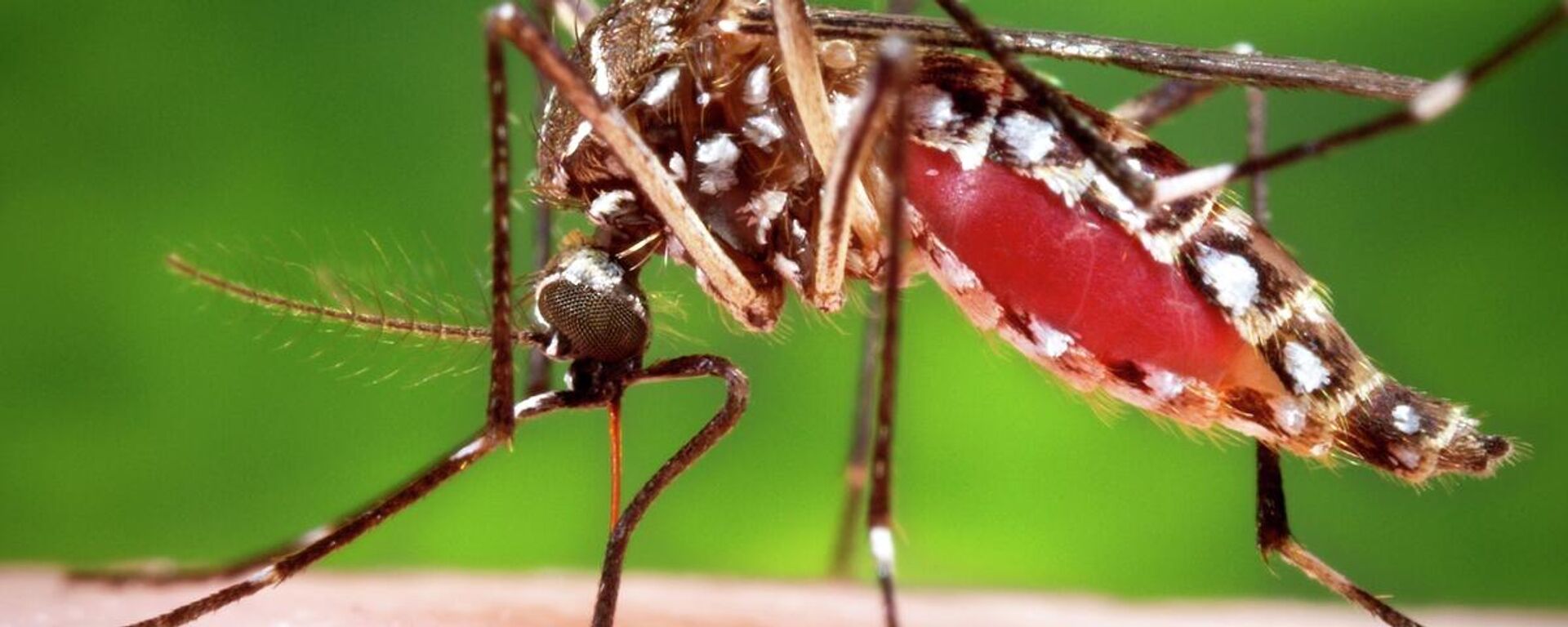https://en.sputniknews.africa/20240116/leading-the-way-which-african-countries-are-certified-malaria-free-by-who-1064637127.html
Leading the Way: Which African Countries Are Certified Malaria-Free by WHO?
Leading the Way: Which African Countries Are Certified Malaria-Free by WHO?
Sputnik Africa
Malaria is a life-threatening disease transmitted by certain species of mosquitoes, mostly found in tropical regions. It is preventable and curable, but was... 16.01.2024, Sputnik Africa
2024-01-16T11:09+0100
2024-01-16T11:09+0100
2024-01-16T11:09+0100
sub-saharan africa
healthcare
world health organization (who)
health
malaria
disease
east africa
north africa
west
central africa
https://cdn1.img.sputniknews.africa/img/07e8/01/10/1064637490_0:0:1600:900_1920x0_80_0_0_4ad9e1ad27908ec9237dca9fc9fbc512.jpg
Despite the fact that the African continent is considered the home of most of the world's malaria cases and fatalities, some African countries have managed to eliminate malaria or never had it in the first place.These countries have been certified malaria-free by the World Health Organization (WHO), meaning that they have achieved zero indigenous malaria cases for at least three consecutive years and have also demonstrated the ability to prevent the disease from resurfacing.The most recent country to join this list is Cabo Verde, which was certified malaria-free by the WHO on January 12, 2024. This is a remarkable achievement for the country and the African region, where malaria remains a major public health challenge. Before Cabo Verde, Algeria was the last African country to be certified as malaria-free by WHO, in 2019. Algeria was the first country in the WHO African Region to report zero indigenous malaria cases in 2013, and maintained this status for six consecutive years. Algeria has implemented effective malaria control interventions and surveillance systems.Another African country to be certified as malaria-free by WHO was Morocco, in 2010. Morocco achieved this status after implementing effective malaria control measures and disease surveillance systems, and working with neighboring countries to prevent cross-border transmission.The first African country to be certified as malaria-free by WHO was Mauritius, in 1973. Mauritius eliminated malaria through indoor residual spraying, environmental management, and mass drug administration. Mauritius also strengthened its health system and surveillance capacity, and maintained a high level of vigilance to prevent the reintroduction of malaria.In addition to these four countries, there are other African countries where, according to WHO data, malaria has never existed or has disappeared without specific interventions. These countries are Lesotho, the Seychelles, Libya and Tunisia, which were certified malaria-free by the WHO in 2012.They either have no suitable habitat for malaria-carrying mosquitoes or have a very low risk of malaria transmission due to climatic or geographic factors. Some have also implemented effective malaria control interventions, such as insecticide-treated nets, indoor residual spraying, and antimalarial drugs.Eliminating malaria is a challenging but achievable goal that requires strong political commitment, effective policies, and community engagement. Certification of malaria elimination will have a positive impact on countries' health systems, tourism industries, and socio-economic development. It will also inspire other countries in the region to intensify their efforts to end malaria. A malaria-free future is possible, and Africa could lead the way.
https://en.sputniknews.africa/20230823/zambian-scientist-reveals-what-attracts-mosquitos-says-his-research-to-help-fighting-malaria-1061557788.html
east africa
north africa
west
central africa
southern africa
cabo verde
morocco
algeria
tunisia
libya
seychelles
mauritius
lesotho
Sputnik Africa
feedback@sputniknews.com
+74956456601
MIA „Rossiya Segodnya“
2024
Muhammad Nooh Osman
https://cdn1.img.sputniknews.africa/img/07e7/04/0a/1058467512_0:0:1280:1280_100x100_80_0_0_ec723833bcbfcaed2e21952965ad99e4.jpg
Muhammad Nooh Osman
https://cdn1.img.sputniknews.africa/img/07e7/04/0a/1058467512_0:0:1280:1280_100x100_80_0_0_ec723833bcbfcaed2e21952965ad99e4.jpg
News
en_EN
Sputnik Africa
feedback@sputniknews.com
+74956456601
MIA „Rossiya Segodnya“
Sputnik Africa
feedback@sputniknews.com
+74956456601
MIA „Rossiya Segodnya“
Muhammad Nooh Osman
https://cdn1.img.sputniknews.africa/img/07e7/04/0a/1058467512_0:0:1280:1280_100x100_80_0_0_ec723833bcbfcaed2e21952965ad99e4.jpg
healthcare, world health organization (who), health, malaria, disease, east africa, north africa, west, central africa, southern africa, cabo verde, morocco, algeria, tunisia, libya, seychelles, mauritius, lesotho
healthcare, world health organization (who), health, malaria, disease, east africa, north africa, west, central africa, southern africa, cabo verde, morocco, algeria, tunisia, libya, seychelles, mauritius, lesotho
Leading the Way: Which African Countries Are Certified Malaria-Free by WHO?
Muhammad Nooh Osman
Writer/Editor
Malaria is a life-threatening disease transmitted by certain species of mosquitoes, mostly found in tropical regions. It is preventable and curable, but was still responsible for about 249 million cases and 608,000 deaths worldwide in 2022. Africa bore a large share of the global malaria burden, accounting for 94% of cases and 95% of deaths.
Despite the fact that the African continent is considered the home of most of the world's
malaria cases and fatalities, some African countries have managed to eliminate malaria or never had it in the first place.
These countries have been certified malaria-free by the World Health Organization (WHO), meaning that they have achieved zero indigenous malaria cases for at least three consecutive years and have also demonstrated the ability to prevent the disease from resurfacing.
The most recent country to join this list is
Cabo Verde, which
was certified malaria-free
by the WHO on January 12, 2024. This is a remarkable achievement for the country and the African region, where malaria remains a major public health challenge.
Cabo Verde has interrupted the transmission of malaria by Anopheles mosquitoes and has also benefited from support from WHO and other partners, such as the Global Fund to Fight AIDS, Tuberculosis and Malaria.
Before Cabo Verde,
Algeria was the last African country to be certified as malaria-free by WHO, in 2019. Algeria was the first country in the WHO African Region to report zero indigenous malaria cases in 2013, and maintained this status for six consecutive years. Algeria has implemented effective malaria control
interventions and surveillance systems.
Another African country to be certified as malaria-free by WHO was Morocco, in 2010. Morocco achieved this status after implementing effective malaria control measures and disease surveillance systems, and working with neighboring countries to prevent cross-border transmission.
The first African country to be certified as malaria-free by WHO was
Mauritius, in 1973. Mauritius eliminated malaria through indoor residual spraying, environmental management, and mass
drug administration. Mauritius also strengthened its health system and surveillance capacity, and maintained a high level of vigilance to prevent the reintroduction of malaria.
In addition to these four countries, there are other African countries where, according to WHO data, malaria has never existed or has disappeared without specific interventions. These countries are Lesotho, the Seychelles, Libya and Tunisia, which were certified malaria-free by the WHO in 2012.
They either have no suitable habitat for
malaria-carrying mosquitoes or have a very low risk of malaria transmission due to climatic or geographic factors. Some have also implemented effective malaria control interventions, such as insecticide-treated nets, indoor residual spraying, and antimalarial drugs.
Eliminating malaria is a challenging but achievable goal that requires strong political commitment, effective policies, and community engagement. Certification of malaria elimination will have a positive impact on countries' health systems, tourism industries, and socio-economic development. It will also inspire other countries in the region to intensify their efforts to end malaria.
A malaria-free future is possible, and Africa could lead the way.



